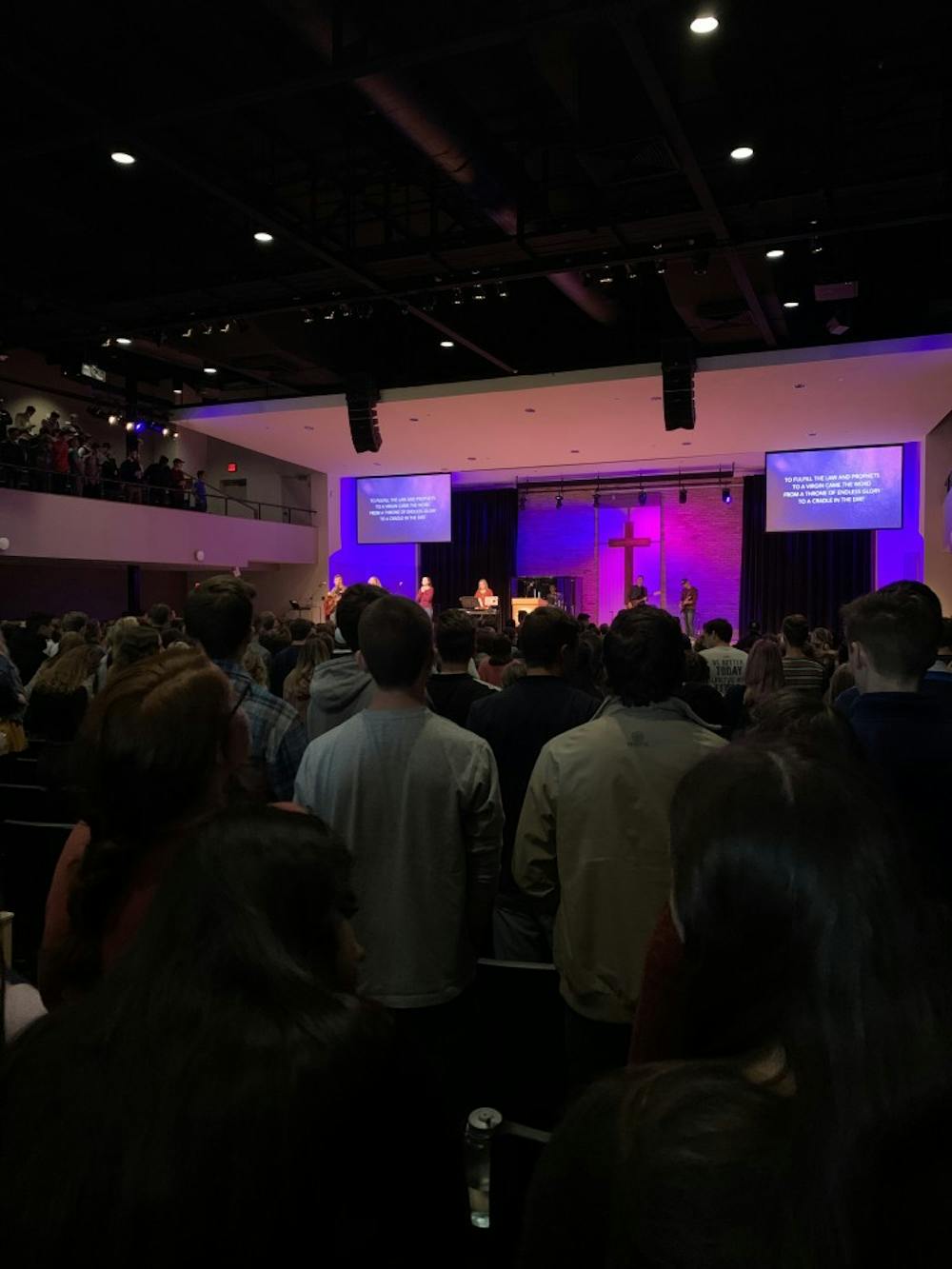Nobody likes to be told what to do.
There’s just something about a required activity that sucks all the fun out of it. Even if it was already going to be done, the orders to do so negate any form of anticipation. This is why Taylor’s approach to chapel should be celebrated.
“You attend because you want to grow,” says the chapel section of the Taylor website.
It seems like a simple idea, but the actual implications are quite meaningful. A place full of people who want to be there is a place where one can be truly free. The words “intentional community” may feel overused at times, but chapel is a genuine example of this.
Not only does this ensure attendees truly want to be there, it also gives them full agency in their faith journey. This idea of self-motivation even inspired last year’s chapel theme “Consider” and this year’s theme “Life to the Full.”
“Especially at this college age, it’s important to start developing ownership and responsibility for choices, and reflecting over how convictions impact actions,” said Campus Pastor Jon Cavanagh.
The ability to choose is what separates chapel from classes. Instead of taking attendance for granted, students have the chance to weigh their options and justify their decisions. In fact, one scholar found this so significant that he chose to do a study on it.
In 2014, MAHE graduate Aaron Morrison wrote “Motivational Factors that Influence Non-Mandatory Chapel Attendance at a Small, Faith-Based Institution in the Midwest.” He discovered five factors students considered while deciding whether or not to attend chapel: spiritual growth opportunities, chapel speaker quality, community, personal needs and celebration of freedom.
Compare this to the much simpler considerations that go into a required chapel approach. Attendance is taken for granted and the only thought put into it arises when extenuating circumstances outweigh the consequences of skipping. This mindset does little to prepare for life outside of school, especially in such an independent area as faith. Once we leave “the Taylor bubble” we still have to worry about finding time for spiritual growth amongst the chaos of life.
It makes sense then that we should learn good habits as early as possible. At Taylor, there are a greater number of opportunities to get involved and more support than one would find out on their own. If there was ever a time or place make such lifestyle decisions it would be now.
It can be easy at times to take Taylor’s approach to chapel for granted, but it’s important to appreciate how significant that really is. Our ability to choose really shapes the way people think about community engagement and their spiritual journey as a whole. Whether we go three times a week or once a semester, we are the ones controlling our decisions and chapel means all the more for it.





